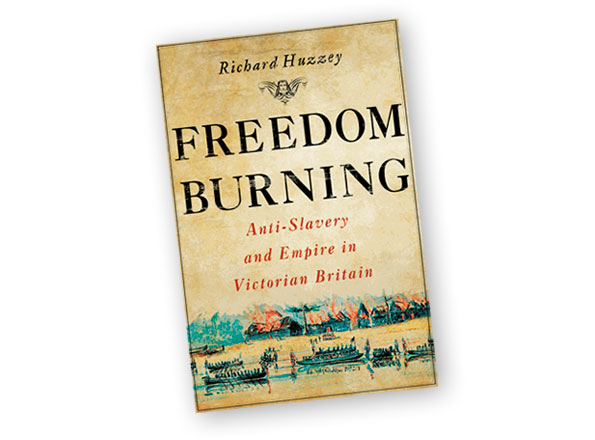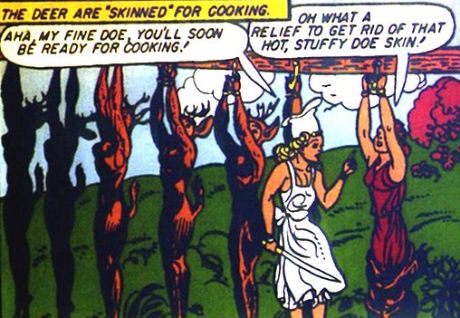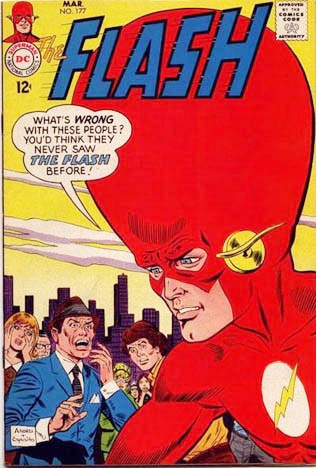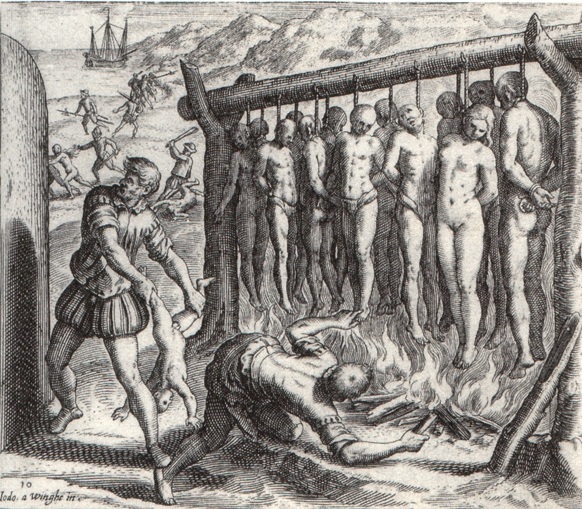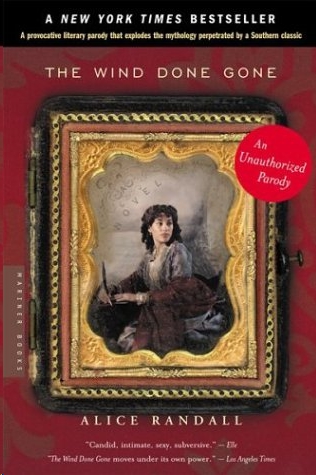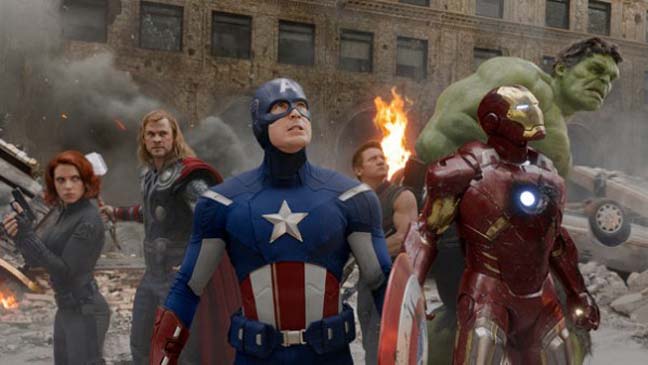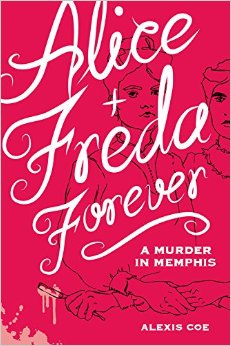This first appeared in edited form in the Chicago Reader.
_______
We tend to think of imperialism as motivated by greed and racism, but the truth is that it is just as often actuated by altruism. Whether it’s Rudyard Kipling urging the U.S. to take up the white man’s burden and colonize the Philippines or Christopher Hitchens urging the U.S. to take up the white man’s burden and occupy Iraq, humanitarian concerns and foreign adventure are inseparable. As counterintuitive as it may seem, in case after case, “empathy” turns out to be another word for “invasion.”
Of course, many anti-imperialists like to argue that the conflation of empathy and invasion is simply cynical spin. From this perspective, talk of democracy is just to cover up a real obsession with (or example) oil. Imperial altruism becomes, then, a kind of complicated conspiracy theory. It is this conspiracy theory which Richard Huzzey meticulously dismantles in his new book Freedom Burning.
Freedom Burning focuses on British anti-slavery in the years following the abolition of the slave trade in 1833. Though the topic is fascinating, and certainly relevant to our own imperial moment, Huzzey is not an especially engaging writer. His book is a dry read, as it winds its way through a maze of Foreign Office policy, Parliamentary politics and long-past controversies. In many cases, Huzzey seems to go out of his way to avoid telling a good story; he references the British Niger expedition of 1841 as a disastrous result of anti-slavery ideology, but he repeatedly eschews the opportunity to explain even the outlines of that disaster, in which more than a third of the 159 Europeans died from disease.
But Huzzey’s bland delivery only emphasizes the bitterness of his conclusion — which is that anti-slavery was not a cover-up for British imperialism. On the contrary, it was a central engine of expansion, and the coherent consensus which made that expansion possible. British determination to search all shipping on the high-seas, for example, was motivated in large part by the desire to prevent the transportation of slaves. When the British torched a West African settlement on the Gallinas River in 1845, they were not enslaving the people, but fighting for emancipation by punishing local leaders who had allegedly had dealings with slave traders. They were, sincerely, burning the village in order to save the people. (18-19)
Anti-slavery, then, became not just the excuse, but the motive for extending and exercising British power. As Huzzey says, “anti-slavery was the popular aspect of imperial expansion,” and “Anti-slavery ideologies were one of the principal ways that commercial, spiritual, and moral objectives could be combined.” (190) This didn’t mean, or didn’t just mean, that politicians couched their policies in anti-slavery terms in order to appeal to the public. It also meant, as Huzzey shows, that politicians, like their constituents, thought about, and conceived of, foreign policy against the background of an anti-slavery consensus to which virtually everyone, politicians and public, had to conform. Huzzey notes that it was basically impossible “to be taken seriously in public debates if an author defended slavery.” (46) Thus, for example, some Brits advocated against the naval suppression of the slave trade. But they did so on solidly anti-slavery grounds, arguing that forcing the trade underground could worsen conditions for transported slaves, and even caused slavers to throw their cargo overboard when a British ship approached. (133)
Anti-slavery ideology was so flexible that it could even exist alongside open and vicious racism. Indeed, as Huzzey depressingly chronicles, anti-slavery actually provided white Britons with a strong rationale for hating their black countrymen. In the first place, the prevalence of slavery in African nations, and the complicity of African leaders in the slave trade, were attributed by white Europeans to black racial inferiority and immorality. (192)
Even more damaging, though, was the coalescence of anti-slavery and racism in the West Indies. There, freed British slaves were reluctant to return to the plantation system, preferring instead to work for themselves. This understandable desire for autonomy and self-respect was interpreted by white Britons as laziness and backwardness, and solidified racist stereotypes of black people. Even the anti-slavery argument that slavery was catastrophically dehumanizing was turned against black people. If blacks were dehumanized, then they shouldn’t be treated as human, the reasoning went — and so anti-slavery provided the foundation for coercive laws forcing black people back into virtual slavery on the plantations. (192)
An ideology of freedom, then, did not lead to an ideology of equality. On the contrary, a belief in freedom ended up justifying and enforcing inequity. Not only did British anti-slavery ideology encourage racism — it arguably encouraged slave-trading. Even as the British boarded the ships of other nations in search of slaves, their own vessels carried hundred of thousands of Indian laborers across the empire. These Indians were not technically “slaves,” but were instead indentured servants or people working under debt bondage or contract. There was some outcry against the treatment of these workers, who were certainly coerced in many cases. However, this coercion was not necessarily seen as incompatible with anti-slavery. On the contrary, since ex-slaves were viewed as lazy and irresponsible, it was generally thought that some form of forced labor was needed to secure a stable post-slavery economy. East Indians were brought to the West Indies to make blacks work without slavery. Thus, again, anti-slavery required (wage or contract) slavery. (201-202)
Huzzey points out that one of the main contributions of anti-slavery to imperialism is simple attention. The suppression of the slave trade provided much early interest in Africa where otherwise there would have been little or none.” (191) Thus, the very energy and focus that had allowed for the abolition of slavery within Britain flowed naturally, once that slavery was abolished, into a continued focus on, and meddling in, Africa, with devastating long-term consequences.
Were those consequences worth the abolition of slavery? If slavery had been abandoned earlier, might there have been a more thorough and rapacious imperial presence in Africa? If slavery had been allowed to continue for longer — say, till after the American Civil War — would Africa have been subject to shorter and less crippling European colonization?
Huzzey raises these questions, but is too careful to attempt to answer them. Still, I wish every would-be do-gooder, whether of left, right, or center, would read his book — and not just because turning pages might briefly distract them from their violent schemes of world-betterment. Huzzey’s book suggests not just that the road to hell is paved with good intentions, but that the road to hell is paved specifically with our good intentions. Freedom, democracy, empathy, even equality — all America’s ideals are WMDs waiting to be armed and detonated wherever our attention happens to alight, whether it’s in Africa, Kosovo, or Iran. U.S. humanitarian efforts throughout the world are, of course, laudable, and do enormous good. But even so, it’s hard to read Freedom Burning without wondering whether it might be better for everyone else if we cared about them a little less, and minded our own business a little more.
______
